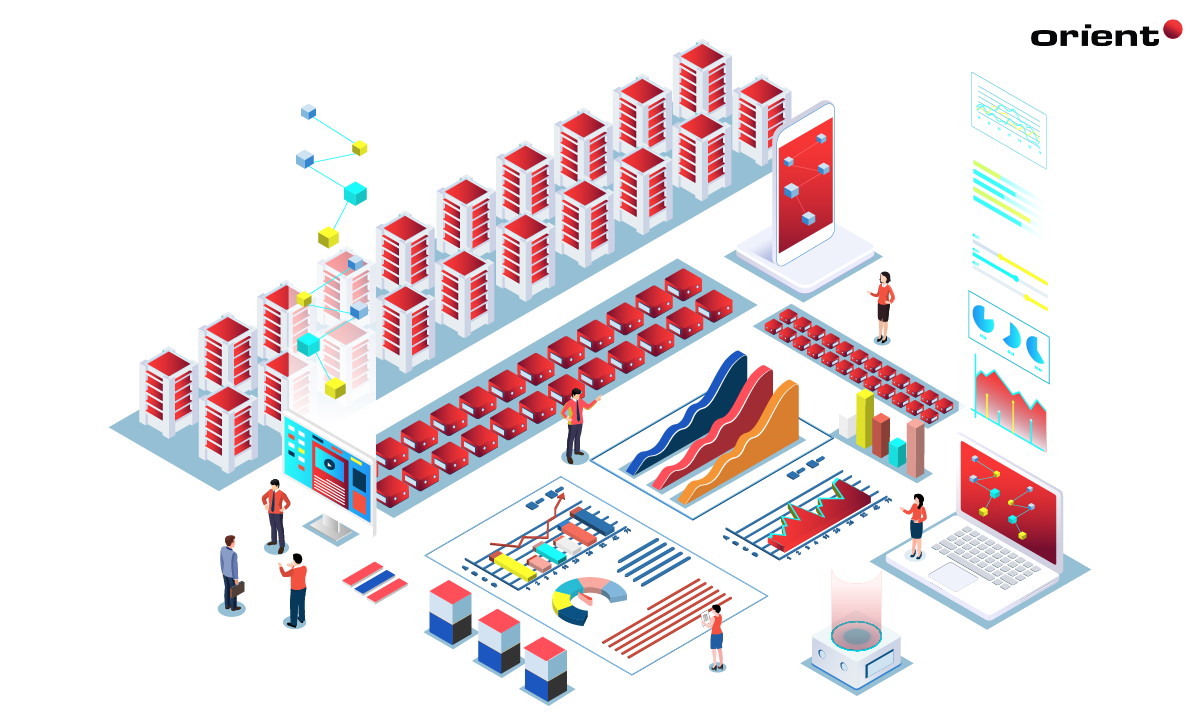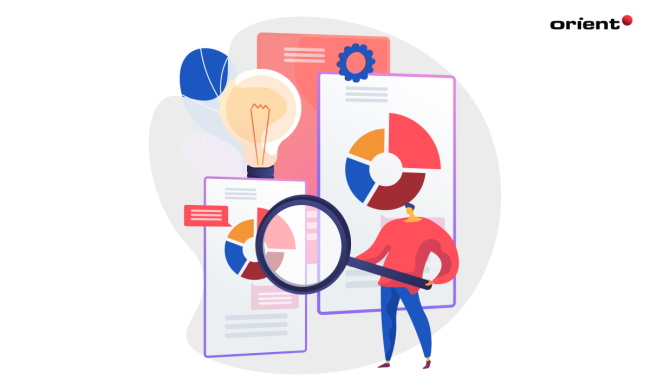
Data Science Frameworks: Turning Data into Valuable Insights
This post will cover ten different types of data science frameworks & discuss their pros and cons, so you can find one that's right for your project or team.


In recent years, data science and financial technology (Fintech) have emerged as two rapidly growing and interconnected fields. Data science is a multidisciplinary field that involves data scientists analyzing both structured and unstructured data using statistical and computational methods, including machine learning and data analysis, to extract insights and inform decision-making processes. Meanwhile, fintech, the application of technology to financial services, has been disrupting traditional financial institutions and enabling new forms of financial innovation.
The intersection of data science and fintech is particularly important, as it has enabled financial firms to leverage the power of big data to make more informed and accurate decisions. Through the use of advanced analytics and insights, data science is reshaping financial decision-making in fintech, driving financial businesses benefit.
In this article, we will explore the ways in which data science is transforming fintech. We will examine case studies of successful fintech companies that have leveraged data science to improve their operations and gain a competitive edge. Additionally, we will discuss the challenges and limitations of data science in fintech and the potential future applications of this technology in the financial sector. By the end of this article, you will have a better understanding of the importance of data science in fintech and the ways in which it is transforming the financial industry.
In fintech, data science is essential for making data-driven decisions, identifying trends and patterns in financial data, and developing predictive models that can inform decision-making processes.
Fintech companies rely heavily on data science to gain a competitive edge, optimize their operations, and improve the accuracy and reliability of their financial technology. By leveraging this specific artificial intelligence, fintech firms can analyze large volumes of data from various sources, including customer transactions, market data, and social media, to gain insights into customer behavior, market trends, and risk factors. These insights can inform decision-making processes, enable the development of personalized financial products and services, and improve the overall customer experience.
Data science has a wide range of applications in finance, including financial transactions, fraud detection, risk analysis, and algorithmic trading. By analyzing large volumes of data, data science can help financial firms identify patterns, trends, and anomalies that would otherwise be difficult to detect.
Financial transactions: Financial organizations may use big data and data analytics to increase the speed, accuracy, and security of transactions by leveraging data science, which is essential to the business.
Fraud Detection: Data science is used to develop models that can detect fraudulent transactions and activities. These models analyze historical transaction data to identify anomalies and flag potentially fraudulent activities.
Risk Analysis: Models for identifying and quantifying financial investment risks, such as operational, market, and credit risks, are created using data science. Data scientists may help financial businesses manage their risk exposure more effectively by identifying patterns and trends in massive amounts of data.
Algorithmic Trading: Data science is used to develop algorithms that can analyze market data and make investment decisions in real-time. These algorithms use predictive analytics techniques to identify patterns and trends in market data and make trades based on this information.
Data science has revolutionized the fintech industry, enabling companies to leverage the power of big data to drive innovation and growth. Here are some examples of how data science is being used in fintech companies to analyze financial data, simplify financial decision-making, and gain a competitive edge.
Square is a US-based fintech company that provides a variety of financial and payment services, including mobile payment solutions, small business loans, and financial management tools. The company was founded in 2009 by Jack Dorsey, who also co-founded Twitter.
The company has developed a range of tools and services that enable small businesses to manage their financial operations more efficiently. Here are some examples of how Square has used data science:
Loan Underwriting: Square Capital is the lending division of Square, which provides small business loans. Square has leveraged data science to develop more accurate credit underwriting models, which enable them to provide more informed lending decisions. By analyzing various data points, such as transaction data and bank account information, Square can develop more accurate credit scoring models and provide loans to organizations that may not qualify for traditional bank loans.
Inventory Management: Square has developed tools that enable small businesses to manage their inventory more efficiently. By analyzing transaction data and identifying patterns of customer behavior, Square can help businesses optimize their inventory levels and reduce waste.
Fraud Detection: Square has developed advanced fraud detection tools that analyze transaction data and identify patterns of fraudulent behavior. By detecting fraudulent transactions in real time, Square can prevent losses and improve the security of its payment platform.
Another example is a Chinese fintech company that provides digital payment and financial services. Ant Financial has leveraged data science to become one of the world’s largest digital payment platforms.
Ant Financial has developed a range of financial products and services that leverage data science to provide personalized and efficient financial solutions. Here are some examples of how Ant Financial has used data science:
Credit Scoring: The company has developed a credit scoring system called Sesame Credit, which uses data science to analyze various data points such as online shopping behavior, social media activity, and financial history to provide users with a credit score. This credit score can be used to access various financial products and services, such as loans and insurance.
Personalized Financial Products: Ant Financial uses data science to analyze customer data and develop personalized financial products and services. For example, the company’s Yu’e Bao platform provides users with personalized investment portfolios based on their risk tolerance and investment goals.
Investment Management: Ant Financial uses data science to develop investment management tools that forecasting future market trends and patterns. This enables the company to make informed investment decisions and optimize investment portfolios.

The use of data science in financial technology also presents several challenges and limitations that must be addressed to ensure the security, accuracy, and ethical use of customer data. Let’s explore these obstacles and find out how to address these problems to maintain the trust and confidence of the customers.
One of the significant challenges of data science in fintech is data privacy and security concerns. Fintech companies collect and store vast amounts of personal and financial data, which can be vulnerable to data breaches and cyber-attacks. This can result in significant financial losses for both the company and its customers.
To address these concerns, fintech companies are implementing various security measures, such as multi-factor authentication, encryption, and biometric authentication. They are also investing in cybersecurity training for their employees and partnering with cybersecurity firms to identify and address potential threats.
Fintech businesses must comply with various regulations, such as anti-money laundering (AML) and know-your-customer (KYC) regulations. These regulations require fintech companies to collect and store sensitive customer data, which can be challenging to manage and secure.
To comply with the regulations, fintech companies are implementing various data management and security measures, such as data encryption, secure data storage, and regular security audits. They are also partnering with regulatory bodies and compliance firms to ensure that they are following all the necessary regulations.
Another challenge of data science in fintech is ensuring the quality and accuracy of data. Fintech companies collect and analyze vast amounts of data, which can be challenging to manage and analyze accurately. Poor data quality and accuracy can lead to inaccurate financial decisions, which can have significant financial consequences.
To address this challenge, fintech companies are investing in data quality and accuracy measures, such as data cleaning and verification processes. They are also using machine learning algorithms to identify and correct errors in the data.
Data science has transformed the fintech industry, enabling companies to develop innovative financial products and services, improve financial decision-making, and gain a competitive edge in the market.
However, data science in fintech also poses several challenges and limitations, such as data privacy and security concerns, regulatory compliance, and data quality and accuracy.
In order to address the challenges and limitations of data science in financial technology, many fintech companies are seeking the expertise of data science consulting services. Orient Software, for example, provides data science consulting services for businesses in the fintech industry. These consulting services can help fintech companies implement various security measures, comply with regulations, and invest in data quality and accuracy measures. By addressing these challenges, fintech companies can continue to leverage the power of data science to drive innovation and growth in the industry while also ensuring the security and ethical use of customer data.
This post will cover ten different types of data science frameworks & discuss their pros and cons, so you can find one that's right for your project or team.
Discover the benefits of data science in digital marketing and learn how it can improve your campaigns.
Learn how big data analytics works, the technology powering it, and the outcomes that leading organizations are achieving today.
Learn how data analytics for cybersecurity can help organizations defend against the latest, most advanced emerging digital threats, internally and externally.
A data analytics strategy is the foundation for all data activities. Learn how to devise one that can lead to meaningful and impactful business transformation.



